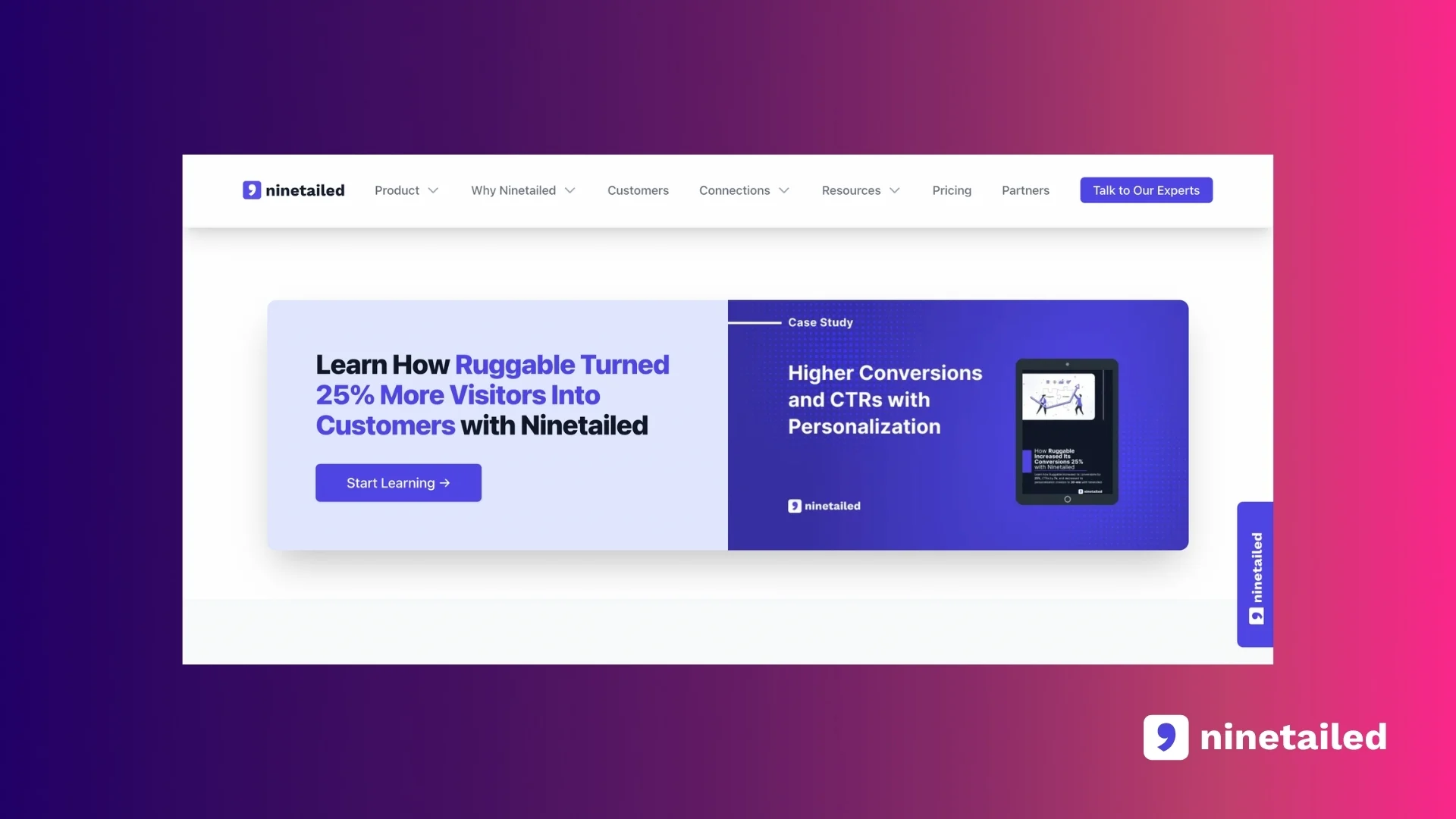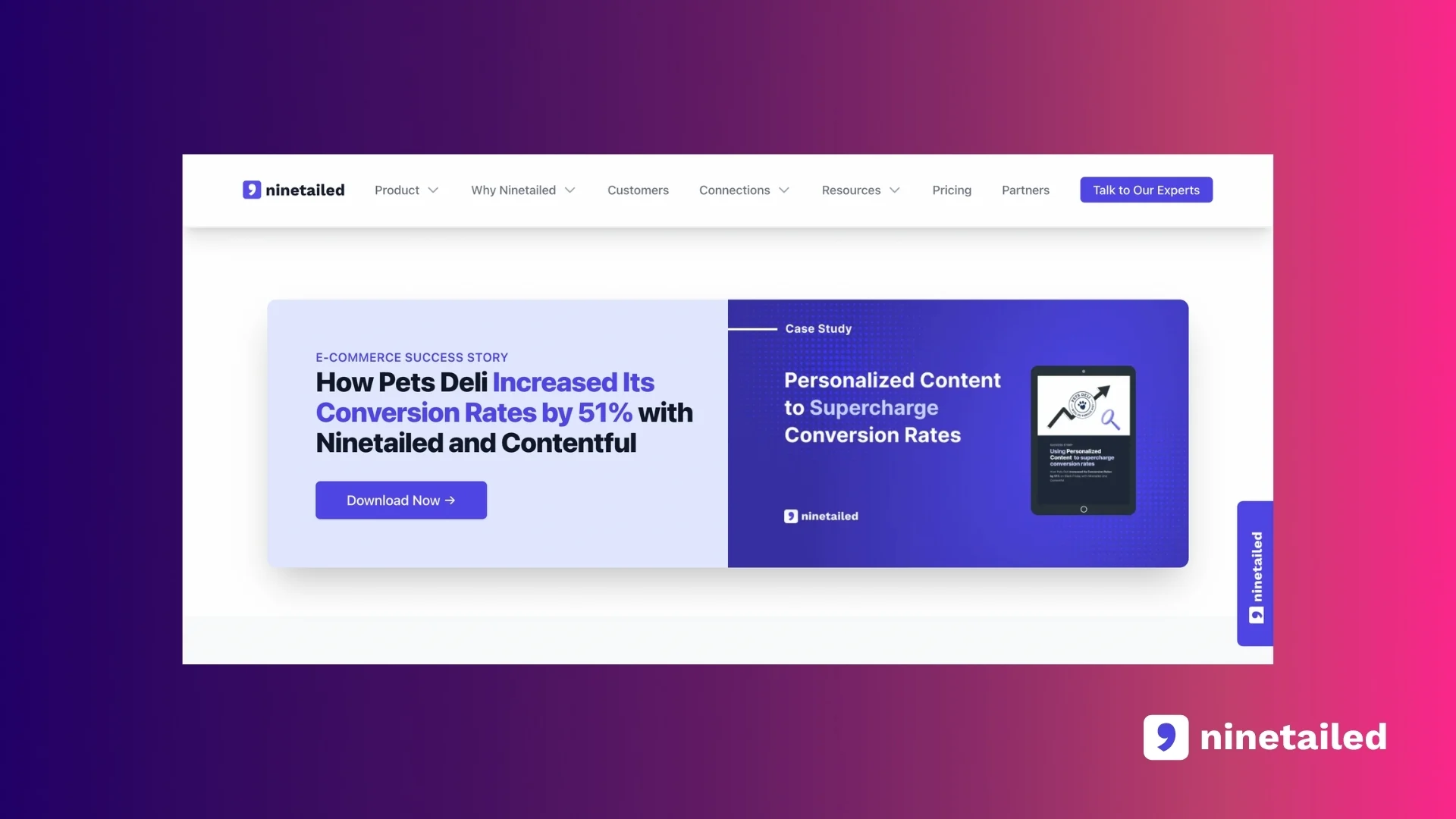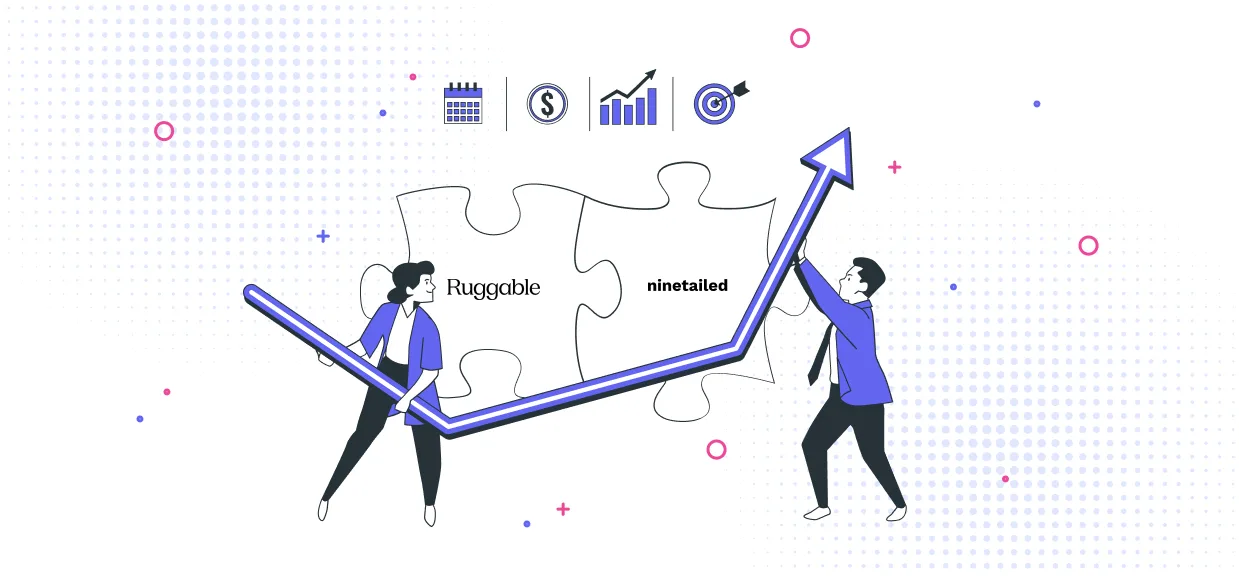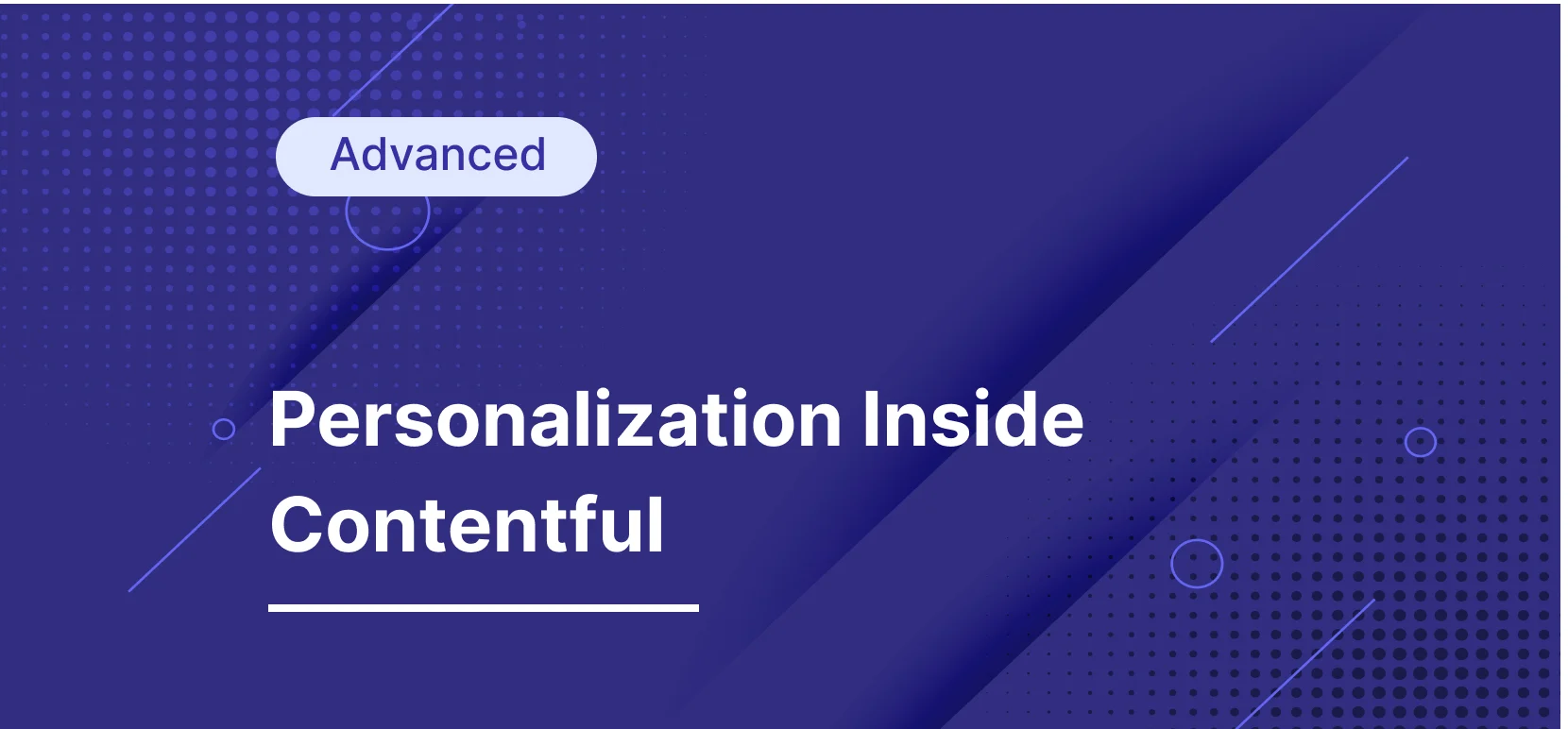- Personalization
Location Personalization: Take Your Localization Game to the Next Level
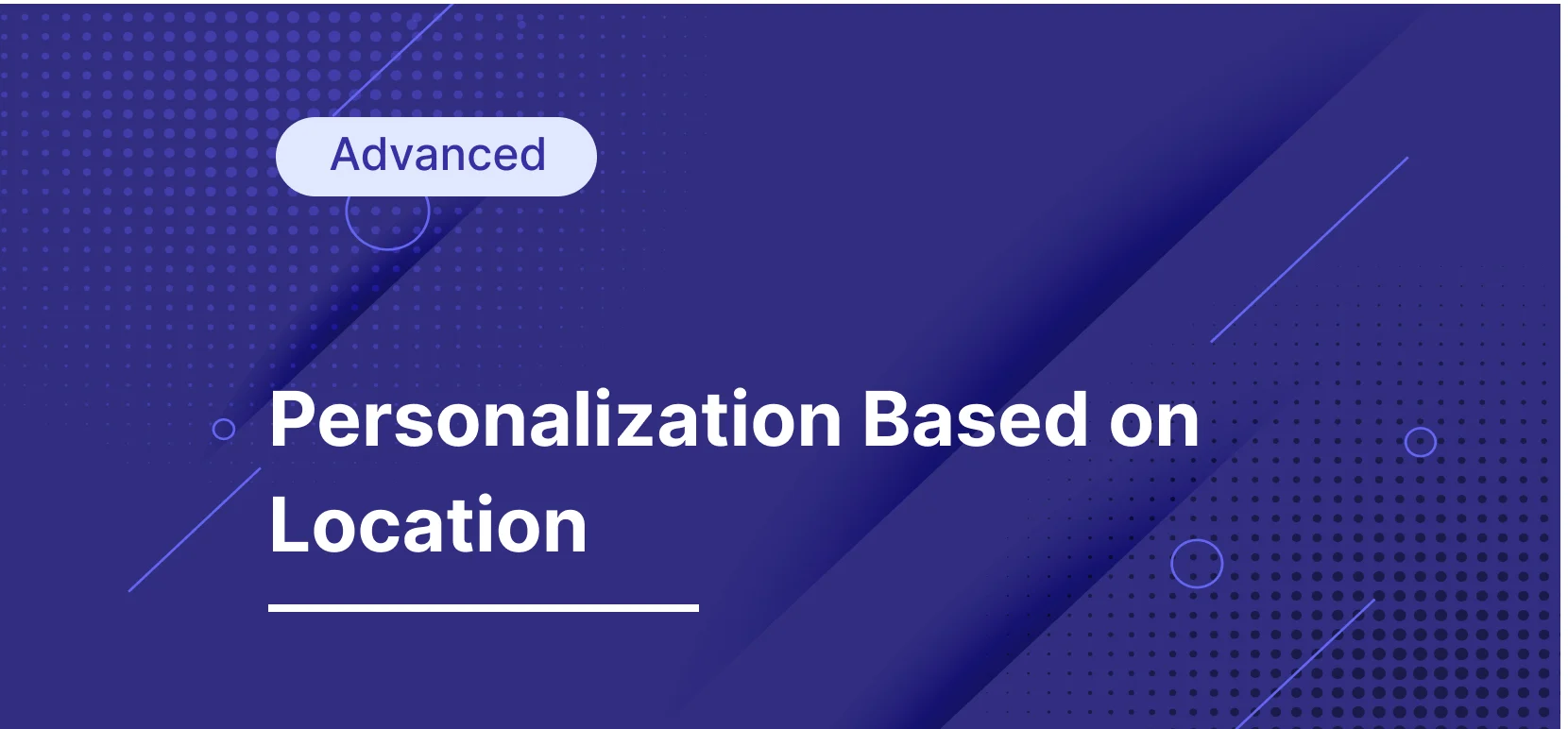
Customers expect brands to understand their unique needs and preferences, delivering content that resonates with their specific circumstances.
One of the most powerful ways to achieve this is by leveraging location-based personalization.
This playbook, "How to Personalize Your Digital Customer Experience Based on Location," will guide you through the process of implementing location-specific strategies using Ninetailed.
The way that Ninetailed resolves location allows you to be as broad as a continent, as granular as a zip code, and anything in between. It's all about delivering the right messages and offers to the right people, right where they are.
Location personalization is a well-adopted strategy among e-commerce brands, using it to showcase different products to varied audience groups based on factors such as season and weather. Global marketing websites are also harnessing the power of location for personalization to highlight discounts and offers for various local markets, tailoring their promotions to align with specific events and holidays.
Before jumping to the details, here's a short video showcasing location personalization with Ninetailed:
This playbook will help you unlock the potential of location-based personalization, creating a digital customer experience that is not just personalized but also localized. Dive in and discover how you can make your brand resonate more deeply with your customers, no matter where they are in the world.
How a Global FMCG Brand Is Personalizing Its Banners Based on Location to Increase Its Conversions and Engagement
One of the biggest global FMCG brands has found a way to rise above the noise by employing location-based personalization strategies, proving that relevance is key to capturing consumer attention.
Partnering with Ninetailed, the brand has replaced its generic homepage banners, product components, and CTA messages with content personalized to the user's geolocation.
The result?
78% more conversions
30% increase in engagement
28% increase in customer satisfaction
Users are not just more likely to engage, but they're also more inclined to convert.
From banners to hero CTAs to product components, every element of their online presence is fine-tuned to resonate with the specific location of the user. The impact of this strategic shift has been remarkable, with the brand witnessing an increase in both engagement rates and conversion events.
This case study highlights the power of location-based personalization. By offering relevant, location-specific content, brands can ensure they are speaking directly to the individual needs and preferences of their customers—increasing the likelihood of engagement and driving conversions in the process.
Dive deeper into this playbook to discover how you can leverage these strategies to elevate your own digital customer experience.
How to Create Personalized Experiences Based on Location Inside Your CMS
Step 1: Defining the Audience and Creating Personalized Content
So, let's take a peek at how we're jazzing up our homepage with personalized experiences. If you're dropping by our website from the DACH region, you'll be greeted with a case study from Pets Deli, one of the market leaders in the European D2C (direct-to-consumer) pet food market.
But if you're visiting us from North America, we've got the Ruggable, an interior brand with patented 2-piece rugs, case study lined up for you.
The real kicker is that we can easily scale this up by adding more tailored experiences. For instance, visitors from the Netherlands, UK, and Belgium can look forward to the Ace & Tate case study. Meanwhile, visitors from Spain and the UK can find the SumUp case study waiting for them, and that's just the beginning.

Once you have your audience defined, the next step is to create personalized content that resonates with each group. This involves tailoring your message to reflect the preferences, needs, and aspirations of your audience segment.
Here are the two case studies for North American visitors and DACH visitors:
Step 2: Testing the Personalized Experience with Ninetailed’s Preview Widget
Since personalized experiences are for specific audiences and based on specific conditions, previewing a personalized experience can be a challenge. This is where Ninetailed’s Preview Widget comes into play.
With Ninetailed’s Preview Widget, you can preview all of your experiences. All you need to do is:
Choose the audience from the list
Select the personalized experience you want to preview
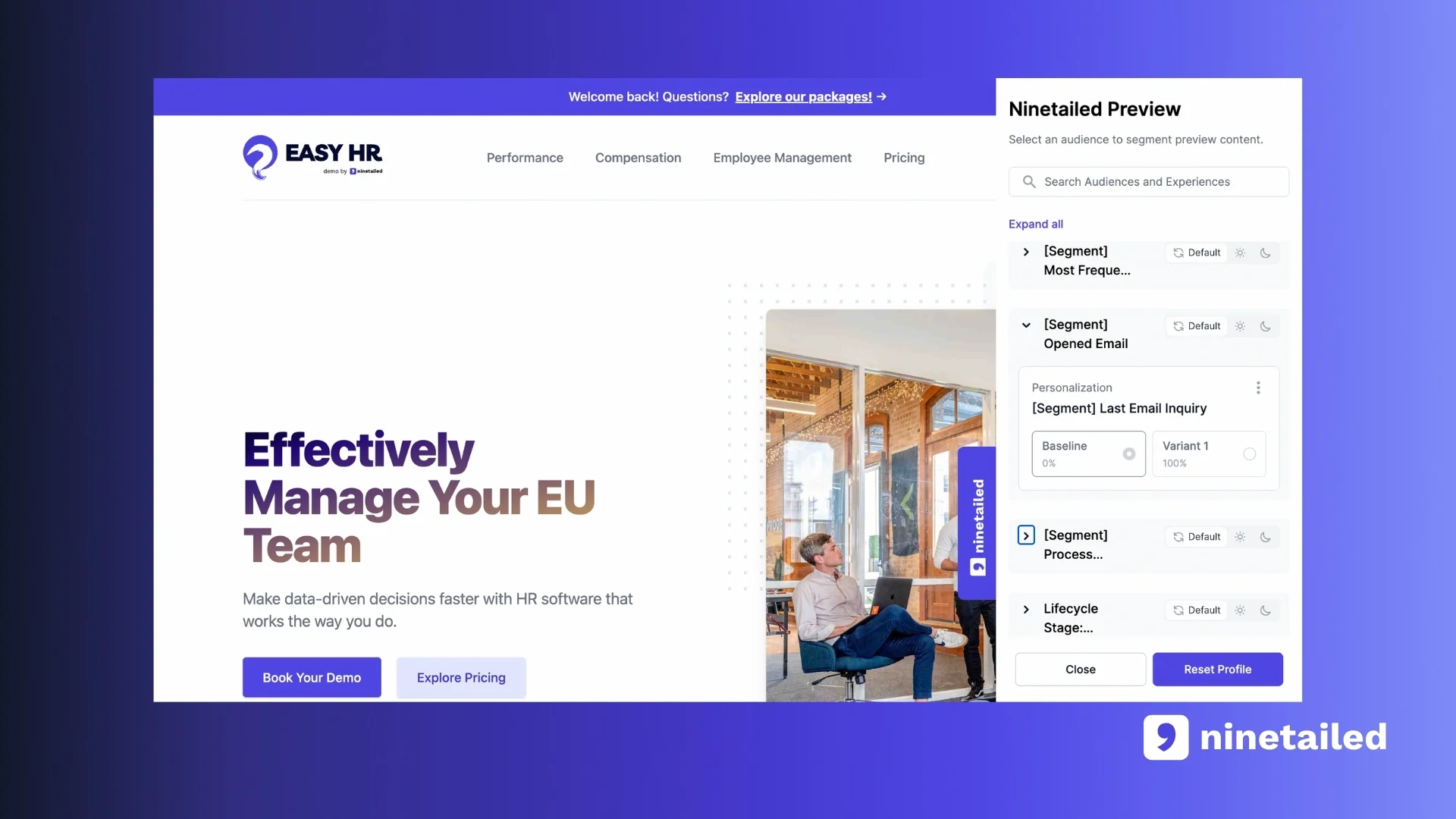
Step 3: Analyzing the ROI of Personalization
Up until this point, you read how to define audience segments and create personalized experiences inside your CMS and preview all the personalized experiences you created.
How do you know if your personalization efforts are working?
This is one of the major challenges for marketers today. However, with Ninetailed, you have everything you need to segment your audience, personalize the experiences, and analyze the results.

With Ninetailed’s Experience Insights, you can easily:
Understand the impact of personalization on conversion value and conversion rate
Display the conversion uplift and the additional number of leads you successfully converted with personalization
Compare the personalized variant with the control group at ease
By focusing on these essential metrics, you can easily track the success of your personalized experiences, make data-driven decisions, and optimize your strategies for maximum effectiveness.
Ninetailed’s Insights capabilities don’t stop there. Ninetailed also offers Audience Insights and Component Insights.
Determining what content to experiment with or personalize starts with understanding your audience segments. Audience Insights visualizes the number of profiles and sessions your audience segments had over time.

You can use this information to identify the audience segments with the highest impact for personalized and/or experimental content.
Now you know the details about your audience segments. So, which content should you personalize first?
Component Insights, another addition to Ninetailed’s segmentation capabilities, is the feature that shows you which content components are seen how many times by specific audience segments.

Component Insights tabulates what content entries specific audience segments have seen. You can use this information to identify the highest-impact content entries for personalized and/or experimental content.
The Bottom Line
Personalization is no longer a luxury—it's a necessity. As we've seen in our playbook, personalization can significantly enhance the performance of your localization initiatives. However, implementing personalization can often seem daunting, especially when it involves coordinating multiple elements, tools, and teams. That's where Ninetailed comes in.
Ninetailed revolutionizes the process of creating personalized experiences based on location, making it easier and more efficient than ever before. Here's how:
Everything Is Inside the CMS
With Ninetailed, you don't have to juggle multiple platforms or tools to create personalized experiences. Everything is housed within the CMS. This means you can easily create your target audiences and create personalized experiences inside your content solution. It streamlines the process, saving time and reducing complexity.
Independence from Developers
Personalization doesn't have to mean endless back-and-forth with your development team.
With Ninetailed, you're in control.
Ninetailed seamlessly integrates with your content management system, meaning you can create, modify, and publish personalized experiences without the need for coding knowledge or developer assistance. This empowers you to react quickly to market trends, adjust personalized experiences on the fly, and maintain the momentum of your marketing efforts.
Leverage Your Own Data
One of the most powerful aspects of Ninetailed is its ability to leverage your own data. You can use insights from your customer data to inform your personalization strategy and tailor landing page experiences to match your audience's preferences, behaviors, and needs. Plus, Ninetailed's flexibility means you can adapt and refine your approach as new data comes in, ensuring your personalization strategy remains as dynamic and responsive as your audience.
In conclusion, personalization is a potent tool in the arsenal of any digital marketer. With Ninetailed, harnessing this power is easier and more accessible than ever before. By keeping everything inside the CMS, eliminating dependency on developers, and allowing you to leverage your own data, Ninetailed equips you with everything you need to create compelling, personalized experiences that boost the performance of your localized campaigns.
Get in touch to learn how Ninetailed personalization, experimentation, and insights works inside your CMS
